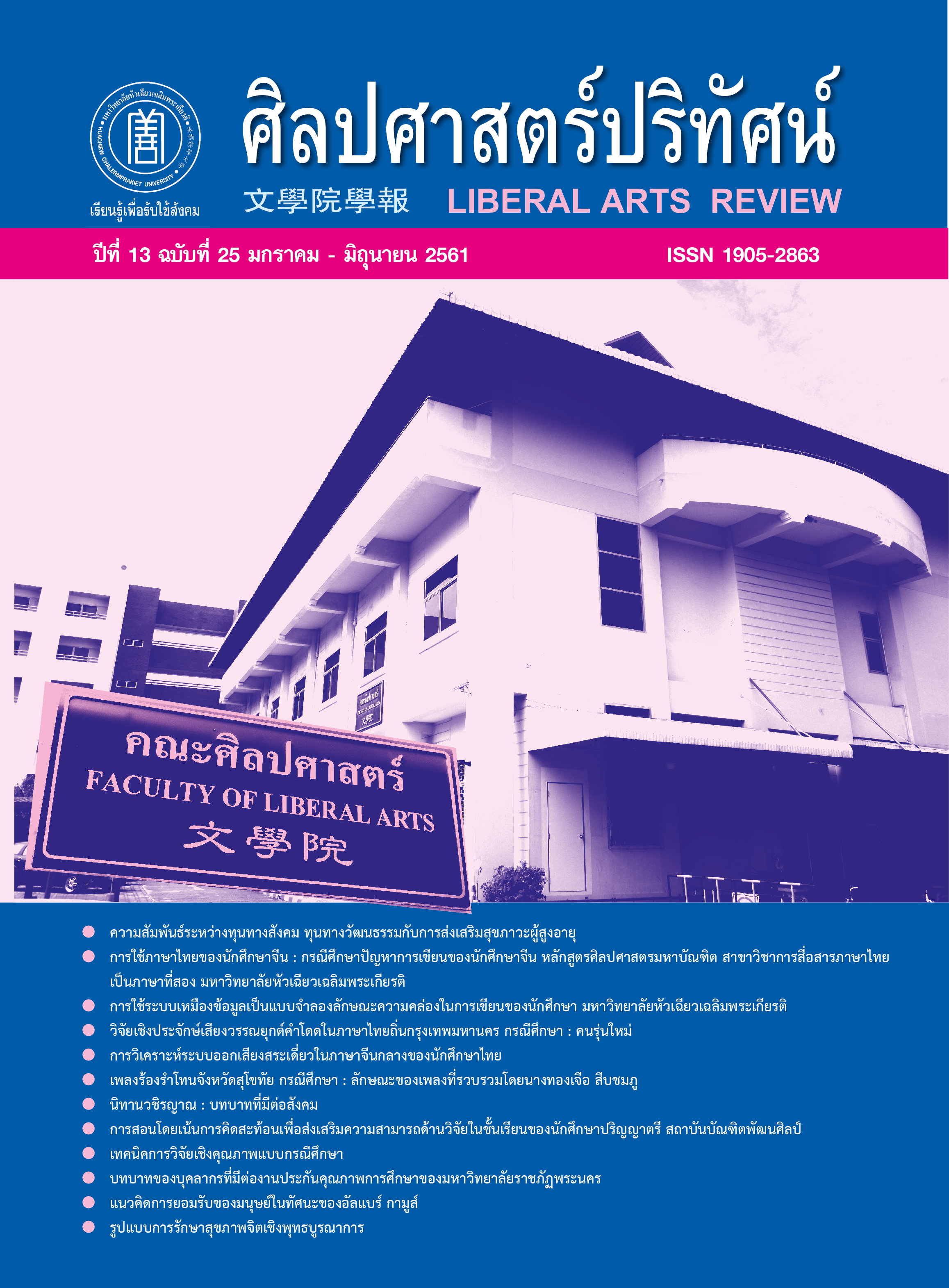Correlation between Social Capitals, Cultural Capitals and Healthy Aging Promotion
Keywords:
Social Capital, Cultural Capital, Healthy Aging PromotionAbstract
This research is a qualitative and quantitative research with the purpose of 1) analyzing the correlation between the health factors of the aging population which consists of physical health, mental health, social health, and spiritual health 2) analyze the social capital, cultural capital and well-being of the elderly. The research sample consisted of 350 senior citizens of Amphoe Thatakiap in Chachoengsao Province, Eastern Thailand. The research instruments implemented in this research were (1) the social capital scale, with a reliability coefficient (alpha) of 0.76 (2) the culture capital scale, with a reliability coefficient (alpha) of 0.86 and (3) the healthy aging promotion scale, with a reliability coefficient (alpha) of 0.84
The research findings were as the following: 1) Over all of health-related factors of the aging people was very good ( =3.28, SD=1.29), especially physical health was better than the remaining factors (
=3.93, SD=1.21), whereas, spiritual health was middle level. (
=2.60, SD=1.30) The social capital promotion healthy aging was middle level (
=2.83, SD=1.31). And culture capital was the highest promoted health of the aging (
=3.68, SD=1.28) 2) Conclusion of hypothesis Testing was that; social capital, cultural capital, and the healthy aging had a significant correlated at the .01. Further suggestions of this research include; establishing organizations in the social capital with stability and setting activities in temples as the center for promotion group of elderly in the community to increase potential development and social participation within the community.
Downloads
Published
How to Cite
Issue
Section
License
บทความที่ได้รับการตีพิมพ์เป็นลิขสิทธิ์ของวารสารศิลปศาสตร์วิชาการและวิจัย
ข้อความที่ปรากฏในบทความแต่ละเรื่องในวารสารวิชาการเล่มนี้เป็นความคิดเห็นส่วนตัวของผู้เขียนแต่ละท่านไม่เกี่ยวข้องกับมหาวิทยาลัยหัวเฉียวเฉลิมพระเกียรติ และคณาจารย์ท่านอื่นๆ ในมหาวิทยาลัยฯ แต่อย่างใด ความรับผิดชอบองค์ประกอบทั้งหมดของบทความแต่ละเรื่องเป็นของผู้เขียนแต่ละท่าน หากมีความผิดพลาดใดๆ ผู้เขียนแต่ละท่านจะรับผิดชอบบทความของตนเองแต่ผู้เดียว




